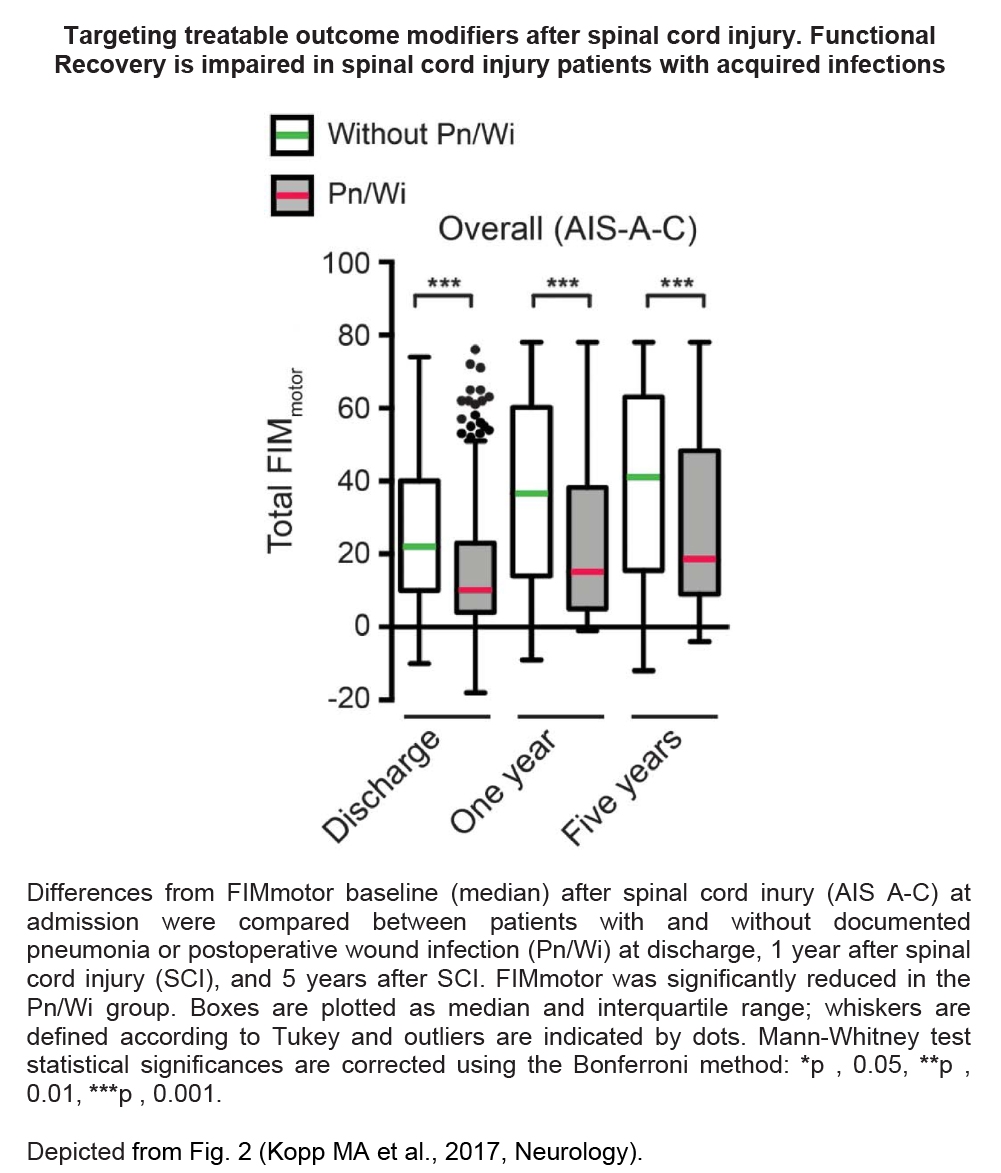You are here
Spinal Cord Injury - Induced Immunodeficiency: Experimental Evidence and Clinical Relevance
Speakers
Abstract:
Spinal cord injury (SCI) affects the normally well-balanced interplay of the two supersystems: the nervous and the immune system. Recent research elucidated some of the involved signals and mechanisms and, importantly, was able to demonstrate that CNS-immune interactions are highly relevant for functional outcome after SCI. SCI-induced immunodeficiency (SCI-IDS) increases the susceptibility to infection, the most relevant complication in SCI patients. Evidence from large multi-center cohort studies demonstrate that hospital-acquired infections such as pneumonia and wound infections are independent risk factors for poor neurological and functional recovery as well as for higher mortality. Acquired infections constitute a clinically relevant and treatable target for protecting the limited endogenous functional regeneration capacity.


